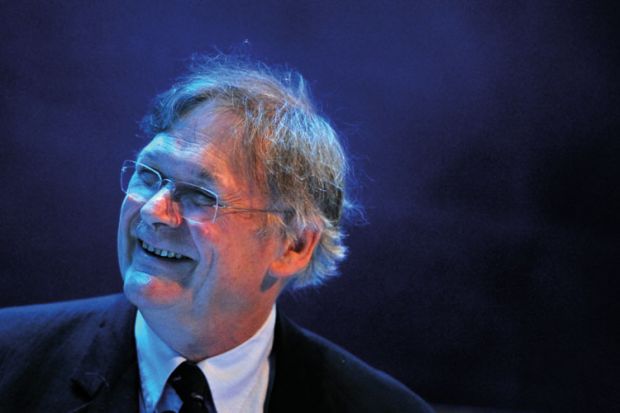Sir Tim contacted the Royal Society today to offer his resignation from its Biological Sciences Awards Committee, which has been accepted.
The Royal Society said that Sir Tim now recognised that the comments he made about women in science earlier this week were “unacceptable”.
It follows his resignation from an honorary professorship at University College London on 10 June.
Sir Tim told the World Conference of Science Journalists in South Korea on 8 June that he had had “trouble with girls” in his lab.
“Three things happen when they are in the lab: you fall in love with them, they fall in love with you and when you criticise them, they cry,” he reportedly said.
He added that he was in favour of “single-sex labs”.
In a statement the Royal Society said that Sir Tim had made “exceptional contributions to science” through his research on the cell cycle.
“Over the years he has also supported the careers of many young researchers, often travelling tirelessly to support young people all over the world,” it says.
“It is the great respect that he has earned for his work that has made his recent comments so disappointing, comments he now recognises were unacceptable,” it adds.
UCL issued a statement on 10 June saying that Sir Tim had resigned his honorary professorship following his comments.
“UCL was the first university in England to admit women students on equal terms to men, and the university believes that this outcome [his resignation] is compatible with our commitment to gender equality,” says the UCL statement.
The Royal Society, which organised the event at which he spoke, said Sir Tim’s views did not reflect its own. Dorothy Bishop, professor of developmental neuropsychology at the University of Oxford, called on the learned society to ban Sir Tim from any committees that make decisions about fellowships, appointments, promotions and policy since “he clearly has a view of women that just makes him inappropriate in these roles”.
Sir Tim shared the 2001 Nobel Prize in Physiology or Medicine with Sir Paul Nurse, current president of the Royal Society, and Leland Hartwell, president and director emeritus of the Fred Hutchinson Cancer Research Center in Seattle, for their discoveries of key regulators of the cell cycle.
Register to continue
Why register?
- Registration is free and only takes a moment
- Once registered, you can read 3 articles a month
- Sign up for our newsletter
Subscribe
Or subscribe for unlimited access to:
- Unlimited access to news, views, insights & reviews
- Digital editions
- Digital access to THE’s university and college rankings analysis
Already registered or a current subscriber? Login




